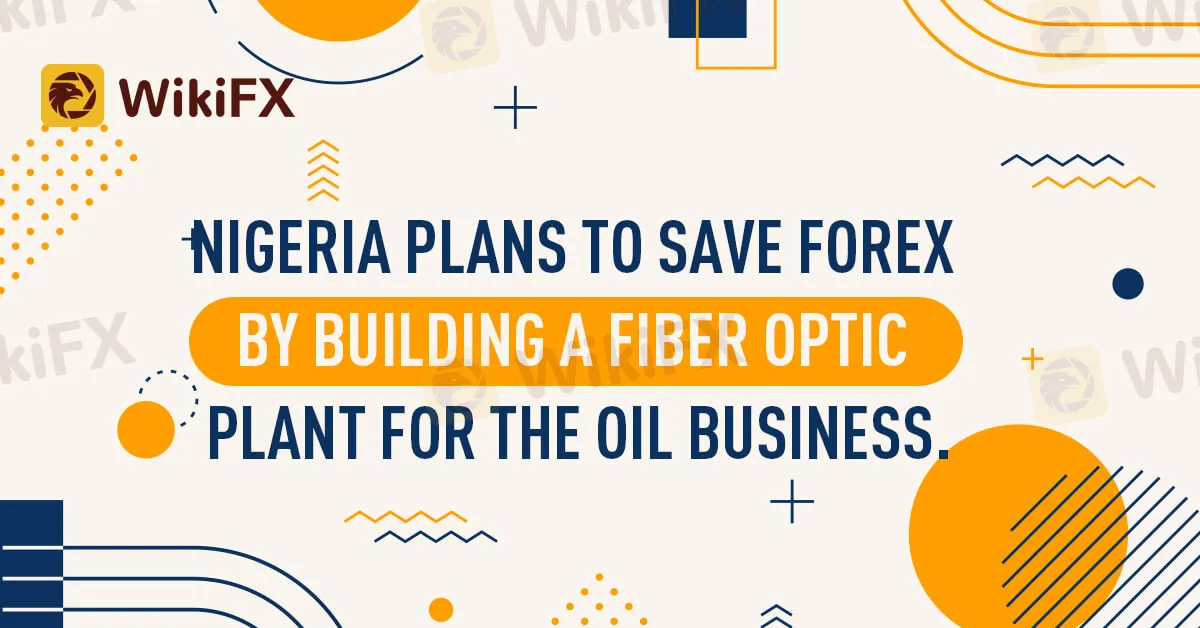简体中文
繁體中文
English
Pусский
日本語
ภาษาไทย
Tiếng Việt
Bahasa Indonesia
Español
हिन्दी
Filippiiniläinen
Français
Deutsch
Português
Türkçe
한국어
العربية
NIGERIA PLANS TO SAVE FOREX BY BUILDING A FIBER OPTIC PLANT FOR THE OIL BUSINESS.
Abstract:According to a report from the governor of Ogun State, in the person of governor Dapo Abiodun, released a statement saying Nigeria has plans to save forex, by building a fiber optic plant for the oil business.

According to a report from the governor of Ogun State, in the person of governor Dapo Abiodun, released a statement saying Nigeria has plans to save forex, by building a fiber optic plant for the oil business.
The governor of Ogun State, Dapo Abiodun, opened the fifth facility in Africa and the first in West Africa to produce fiber optic cables.
The governor said that the plant will assist his administration's efforts to innovate and build its infrastructure for the digital economy.
On the Lagos-Ibadan Expressway is where the factory, Coleman Wire and Cable Fibre Optic Company, is situated.
With the opening of a multi-billion dollar fiber optic cable manufacturing plant supported by Coleman Technical Industries Limited, Nigeria's rapidly diminishing foreign reserves may be able to save more of the limited resource in the months to come (CTIL).
The firm, known for producing various high- and low-voltage cable specifications for the oil and gas industry and the construction industry, intends to take advantage of the African Continental Free Trade Area (AfCFTA) to make a significant impact in the new continental trade bloc.
At the weekend's opening of the multi-billion dollar CTIL fiber optic cable production facility in Arepo, Ogun State, the governor of Ogun State, Mr. Dapo Abiodun, revealed this.
Abiodun remarked that the facility, which he described as the first of its type in the West African area and the fifth in Africa, will preserve foreign exchange, encourage technological transfer, as well as create jobs and lessen poverty in the state.
The governor made a suggestion that the factory would speed up the construction of the infrastructure for the digital economy and improve teaching and learning methods at universities across the state and the nation.
The local production of fiber optic cables will assist in the introduction of Information and Communication Technology (ICT) in the various economic sectors. It will develop academic institutions' teaching and learning techniques, improve medical treatment, make data information easier to obtain, and improve internet connectivity.
Foreign exchange has been a major trade in the country.
While congratulating the company on its accomplishment, the Executive Secretary of the Nigerian Content Development and Monitoring Board (NCDMB), Engr Simbi Wabote, noted earlier in his remarks that the company had successfully used the Nigerian Oil & Gas Industry Content Development (NOGICD) Act to invest in challenging terrains that were not feasible before the Act's passage.
“It gives me great pleasure to report that Coleman has never turned around and is expanding its presence in Nigeria's industrialisation plan,” he added. Today is evidence of such such attempts.
The NCDMB boss made a hint about how the fiber optic cable factory will support the Federal government's effort to create jobs while being represented at the event by the General Manager, Project Certification and Authorization Division, Engr. Paul Zuhumben. The facility will employ about 500 people.
Coleman will gain from the African Continental Free Trade Area (AfCFTA), which aims to permit unrestricted commerce, commodities, and service mobility across the African continent, according to Zuhumben, because certain of its amenities are not present in the majority of the continent.
He urged Nigerian companies to prepare themselves to benefit from AfCFTA's rules in order to replicate Coleman.

Disclaimer:
The views in this article only represent the author's personal views, and do not constitute investment advice on this platform. This platform does not guarantee the accuracy, completeness and timeliness of the information in the article, and will not be liable for any loss caused by the use of or reliance on the information in the article.
Read more

The Hidden Checklist: Five Unconventional Steps to Vet Your Broker
Forex broker scams continue to evolve, employing new tactics to appear credible and mislead unsuspecting traders. Identifying these fraudulent schemes requires vigilance and strategies beyond the usual advice. Here are five effective methods to help traders assess the legitimacy of a forex broker and avoid potential pitfalls.

Doo Financial Obtains Licenses in BVI and Cayman Islands
Doo Financial, a subsidiary of Singapore-based Doo Group, has expanded its regulatory footprint by securing new offshore licenses from the British Virgin Islands Financial Services Commission (BVI FSC) and the Cayman Islands Monetary Authority (CIMA).

CFI’s New Initiative Aims to Promote Transparency in Trading
A new programme has been launched by CFI to address the growing need for transparency and awareness in online trading. Named “Trading Transparency+: Empowering Awareness and Clarity in Trading,” the initiative seeks to combat misinformation and equip individuals with resources to evaluate whether trading aligns with their financial goals and circumstances.

Malaysian-Thai Fraud Syndicate Dismantled, Millions in Losses Reported
The Royal Malaysia Police (PDRM) has received 26 reports concerning the Nicshare and CommonApps investment schemes, both linked to a major fraudulent syndicate led by a Malaysian citizen. The syndicate’s activities came to light following the arrest of its leader by Thai authorities on 16 December.
WikiFX Broker
Latest News
ASIC Sues Binance Australia Derivatives for Misclassifying Retail Clients
AIMS Broker Review
The Hidden Checklist: Five Unconventional Steps to Vet Your Broker
WikiFX Review: Is FxPro Reliable?
Malaysian-Thai Fraud Syndicate Dismantled, Millions in Losses Reported
Trading frauds topped the list of scams in India- Report Reveals
YAMARKETS' Jingle Bells Christmas Offer!
Doo Financial Expands Regulatory Reach with Offshore Licenses in BVI and Cayman Islands
Why is there so much exposure against PrimeX Capital?
Russia to Fully Ban Crypto Mining in 10 Regions Starting January 1, 2025
Currency Calculator


